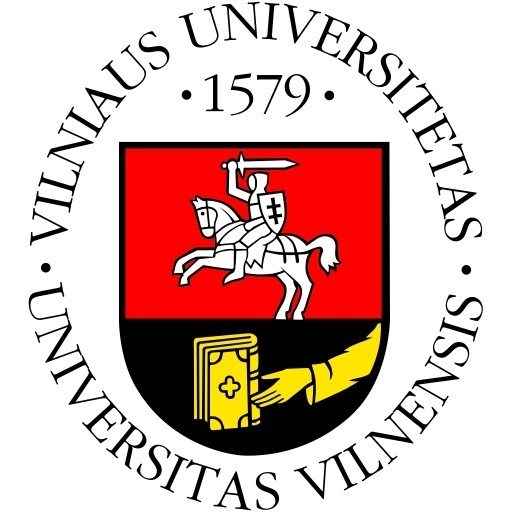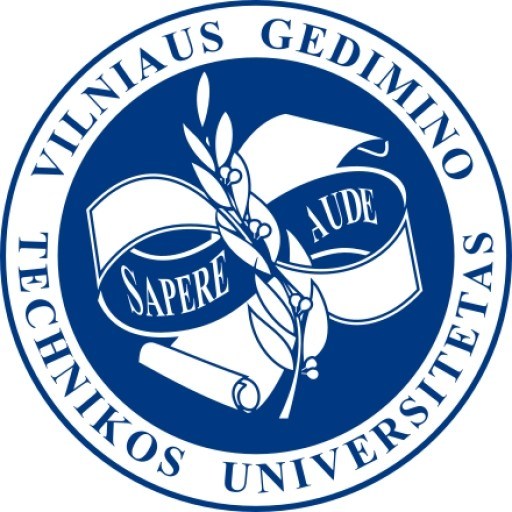Photos of university / #vilniusuniversity
Informatics at Vilnius University is a comprehensive and innovative higher education program designed to prepare students for the dynamic and rapidly evolving field of information technology. This bachelor's degree programme provides a solid foundation in computer science, programming, software development, data management, and information systems, equipping graduates with the skills necessary to excel in a broad range of IT careers. Throughout the programme, students engage with cutting-edge technologies and methodologies, gaining practical experience through projects, internships, and collaboration with industry partners. The curriculum emphasizes problem-solving, logical thinking, and analytical skills, fostering the ability to design, develop, and maintain complex software solutions tailored to various industries. Additionally, the programme covers fundamental areas such as algorithms, databases, networking, cybersecurity, and artificial intelligence, ensuring that students have a well-rounded understanding of the entire IT landscape. Vilnius University’s Informatics programme is delivered by experienced faculty members who are active researchers and industry experts, providing students with up-to-date knowledge and industry insights. The programme also encourages interdisciplinary collaboration, innovation, and entrepreneurship, preparing graduates not only for employment but also for contributing to technological advancements and digital transformation initiatives. Students have access to state-of-the-art laboratories, modern computing facilities, and a vibrant campus community that fosters creativity and collaboration. Graduates of the Informatics programme are highly sought after by employers in Lithuania and internationally, working in software development companies, IT consulting, data analysis, cybersecurity firms, and start-ups, among other sectors. By completing this programme, students gain the technical competence, critical thinking, and adaptability needed to thrive in the fast-changing world of information technology, making them valuable assets to any organization in the digital age.
The Bachelor’s Degree in Informatics at Vilnius University offers a comprehensive and in-depth education designed to prepare students for a wide range of careers in the rapidly evolving world of technology and information systems. The program provides a solid foundation in computer science principles, programming languages, algorithms, and data structures, enabling students to develop innovative solutions to complex problems. Students will gain hands-on experience through practical assignments, laboratory work, and participating in real-world projects, ensuring they are well-equipped to meet the demands of the IT industry.
The curriculum covers essential areas such as software development, database design and management, computer networks, cybersecurity, artificial intelligence, machine learning, and data analysis. Emphasizing both theoretical knowledge and practical skills, the program aims to cultivate analytical thinking, problem-solving abilities, and creativity. Throughout their studies, students also learn about software engineering, systems analysis, and design, as well as emerging technologies that are shaping the future of informatics.
The program also offers opportunities for specialization in areas like web development, mobile applications, information systems management, and cybersecurity, allowing students to pursue their particular interests and career goals. Vilnius University’s strong ties with industry partners provide students with internships, workshops, and collaborative projects that enhance learning and facilitate a smooth transition into the workforce.
Graduates of the Bachelor’s Degree in Informatics from Vilnius University will be prepared for employment in diverse sectors including IT consulting, software development, data analysis, telecommunications, finance, and government agencies. They will possess the skills necessary to design, implement, and manage complex information systems and to adapt to continuous technological advancements. The program also provides a solid base for those wishing to pursue postgraduate studies in informatics or related fields, fostering lifelong learning and professional development.
Program requirements for the Bachelor's degree in Informatics at Vilnius University include a solid foundation in mathematics, programming, and computer science principles. Applicants are typically required to have completed secondary education with a strong emphasis on mathematics and physics. Proficiency in English is necessary, as the program is taught in English, and applicants must demonstrate sufficient language skills through standardized tests such as TOEFL or IELTS, or equivalent proof of language proficiency.
Admission also considers the applicant's overall academic performance, motivation, and relevant extracurricular activities in the field of technology and computer science. Possession of prior experience in programming languages such as Java, C++, or Python can be advantageous but is not strictly mandatory. The university values analytical thinking, problem-solving abilities, and interest in technological innovation.
Applicants must submit their application forms through Vilnius University’s official online admissions portal within the specified deadlines. Along with the application, official secondary school transcripts, proof of language proficiency, a motivation letter, and possibly letters of recommendation are required. The selection process involves a review of academic achievements and, in some cases, an interview or entrance exam to assess the applicant’s motivation and suitability for the program.
Once admitted, students are expected to fulfill program-specific prerequisites, including completing foundational courses in mathematics, programming, algorithms, and data structures during the first year. Continued enrollment depends on satisfactory academic performance and attendance. The curriculum progressively introduces advanced topics such as software development, databases, computer networks, artificial intelligence, machine learning, and data analysis, which are essential for a comprehensive education in informatics.
Practical experience is emphasized through laboratory work, project-based assignments, and internships, often in collaboration with industry partners. Students are encouraged to participate in research projects, hackathons, and competitions to enhance their practical skills and innovation capability. Graduates of the program are prepared for careers in software engineering, data science, information system management, and further studies in postgraduate programs. The program's structure and requirements aim to develop well-rounded professionals capable of addressing current and emerging challenges in informatics and technology sectors.
The financing of the Informatics study programme at Vilnius University is primarily based on a combination of state budget funding, tuition fees paid by international and non-resident students, and supplementary funding sources such as research grants and partnerships with industry. The programme benefits from Lithuania's national higher education support initiatives aimed at promoting STEM education, which provide financial assistance and scholarships to outstanding students, thereby reducing their financial burden and enhancing accessibility.
Students enrolled in full-time studies under the state-funded scheme do not pay tuition fees, as their education costs are covered by Lithuanian government allocations allocated through the Ministry of Education, Science and Sports. These allocations are determined annually and encompass both operational costs for the university and specific funding designated for technical and scientific studies such as Informatics. The university also allocates resources for infrastructure, laboratories, and learning materials essential for high-quality education delivery.
International students or those opting for non-funded places contribute to the programme's financing through tuition fees, which are set in accordance with Vilnius University's fee structure for international programmes. The fees are periodically reviewed and adjusted to reflect inflation, market standards, and the evolving costs of delivering the programme. These fees contribute significantly to the programme's financial sustainability and are utilized to maintain high standards of education, employ modern technologies, and facilitate student exchanges and internships.
In addition, research grants obtained from national and European Union sources play a crucial role in financing not only the research component of the programme but also advanced training, workshops, and conferences. These projects often involve collaboration with industry partners, which further supports the practical training and employment prospects of graduates. The university also encourages industry sponsorships and partnerships which provide additional financial resources and internship opportunities, integrating academic learning with real-world applications.
Vilnius University actively promotes scholarship programmes and awards for academically excellent students, which partially offset study costs and motivate high performance. Moreover, the university strives to diversify its funding streams by developing lifelong learning programmes, specialized training courses, and online modules that can be monetized, thus creating additional revenue sources.
Overall, the tuition and miscellaneous fees, governmental funding, research grants, industry collaborations, and scholarships combine to create a diverse financial framework that supports the development, delivery, and continuous improvement of the Vilnius University Informatics study programme, ensuring its sustainability and the high quality of education offered to students.
Informatics at Vilnius University is a comprehensive study program designed to equip students with the essential knowledge and practical skills in the field of information technology and computer science. The program focuses on fundamental and advanced concepts such as algorithms, programming, software development, data structures, databases, computer networks, cybersecurity, and artificial intelligence. Students gain a solid foundation in theoretical principles while also engaging in hands-on projects, fostering problem-solving abilities, logical thinking, and technical proficiency. The curriculum is frequently updated to reflect the latest technological advancements and industry trends, ensuring graduates are well-prepared for the dynamic job market. Vilnius University emphasizes an interdisciplinary approach, encouraging students to explore related fields such as mathematics, physics, and business informatics to develop versatile competencies. The program often includes opportunities for internships, research collaborations, and participation in national and international competitions, enhancing practical experience and employability. Graduates of the Informatics program at Vilnius University can pursue careers in software development, IT consulting, system analysis, data analysis, cybersecurity, and research. The university's strong ties with industry partners and its active research community provide students access to valuable resources, mentorship, and professional networks. The program typically spans four years for a full Bachelor's degree, with further options for specialization at the Master's level, offering a pathway to advanced roles in academia or industry innovation. Vilnius University is committed to fostering an inclusive and stimulating academic environment, supporting students through modern facilities, qualified faculty, and various extracurricular activities designed to develop both technical and soft skills essential for successful careers in the rapidly evolving field of informatics.









